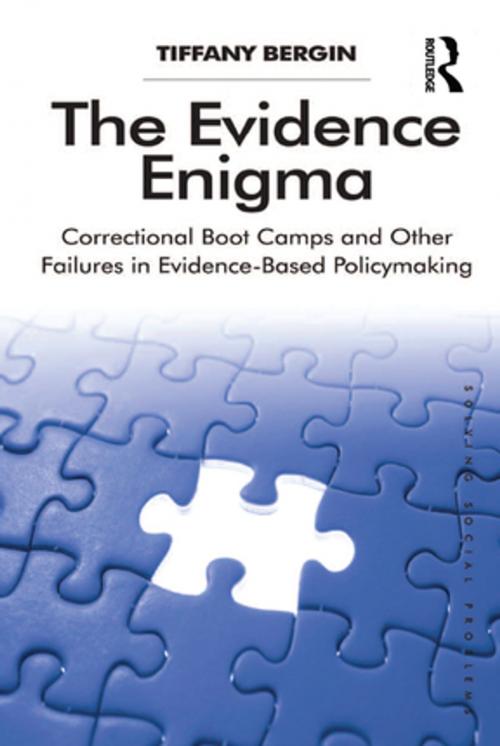The Evidence Enigma
Correctional Boot Camps and Other Failures in Evidence-Based Policymaking
Nonfiction, Social & Cultural Studies, Social Science, Crimes & Criminals, Criminology| Author: | Tiffany Bergin | ISBN: | 9781317032557 |
| Publisher: | Taylor and Francis | Publication: | March 3, 2016 |
| Imprint: | Routledge | Language: | English |
| Author: | Tiffany Bergin |
| ISBN: | 9781317032557 |
| Publisher: | Taylor and Francis |
| Publication: | March 3, 2016 |
| Imprint: | Routledge |
| Language: | English |
Why do policymakers sometimes adopt policies that are not supported by evidence? How can scholars and practitioners encourage policymakers to listen to research? This book explores these questions, presenting a fascinating case study of a policy that did not work, yet spread rapidly to almost every state in the United States: the policy of correctional boot camps. Examining the claims on which the implementation of the policy were based, including the assertions that such boot camps would reduce reoffending, save public money and ease overcrowding - none of which proved to be universally accurate - The Evidence Enigma also investigates the political, economic, cultural, and other factors which encouraged the spread of this policy. Both qualitative and quantitative methods are used to test hypotheses, as the author draws rich comparisons with other policies, including Drug Abuse Resistance Education (DARE), abstinence-only sex education programs, and the electronic monitoring or tagging of offenders in England and Wales. Presenting important lessons for guarding against the proliferation of policies that don't work in future, this ground-breaking and accessible book will be of interest to those working in the fields of criminology, sociology and social and public policy.
Why do policymakers sometimes adopt policies that are not supported by evidence? How can scholars and practitioners encourage policymakers to listen to research? This book explores these questions, presenting a fascinating case study of a policy that did not work, yet spread rapidly to almost every state in the United States: the policy of correctional boot camps. Examining the claims on which the implementation of the policy were based, including the assertions that such boot camps would reduce reoffending, save public money and ease overcrowding - none of which proved to be universally accurate - The Evidence Enigma also investigates the political, economic, cultural, and other factors which encouraged the spread of this policy. Both qualitative and quantitative methods are used to test hypotheses, as the author draws rich comparisons with other policies, including Drug Abuse Resistance Education (DARE), abstinence-only sex education programs, and the electronic monitoring or tagging of offenders in England and Wales. Presenting important lessons for guarding against the proliferation of policies that don't work in future, this ground-breaking and accessible book will be of interest to those working in the fields of criminology, sociology and social and public policy.















